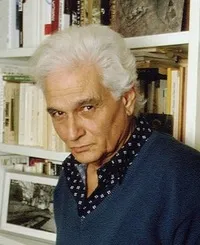
Jacques Derrida: Deconstruction
Introduction
Jacques Derrida, a pivotal figure in contemporary philosophy, is best known for developing a form of semiotic analysis known as deconstruction. His work has had a profound impact on a wide array of disciplines, including philosophy, literature, law, and cultural studies.
Life and Historical Context
Born in 1930 in El Biar, Algeria, Jacques Derrida studied at the École Normale Supérieure in Paris. He was influenced by phenomenologists like Edmund Husserl and Martin Heidegger, as well as structuralist thinkers. Derrida's career included numerous publications, lectures, and academic positions that cemented his role as a leading thinker in post-structuralist philosophy.
Key Ideas and Philosophical Contributions
Derrida's philosophy is centered around the concept of deconstruction, a critical approach that seeks to reveal the inherent instability of meaning in texts and concepts.
Deconstruction: Deconstruction is a method of critical analysis that aims to uncover the assumptions and contradictions underlying any text or system of thought. It reveals how meaning is not fixed but is constantly shifting and contingent.
Différance: This term, coined by Derrida, refers to the process by which meaning is always deferred and differentiated. It highlights the temporal and relational nature of language and meaning.
Logocentrism: Derrida critiqued the Western tradition's focus on logos (reason, word) as the central principle of meaning. He argued that this privileging of presence and speech over writing obscures the fluid nature of language and meaning.
Binary Oppositions: Derrida analyzed how Western thought relies on binary oppositions (such as speech/writing, presence/absence) and demonstrated that these oppositions are hierarchical and interdependent, rather than natural or stable.
Textuality: For Derrida, all phenomena can be understood as texts, meaning they are subject to interpretation and deconstruction. This view extends beyond written texts to include social, cultural, and philosophical structures.
Influence and Legacy
Jacques Derrida's work has had a significant impact on various fields, including literary theory, legal studies, and cultural criticism. His ideas have influenced thinkers such as Judith Butler, Hélène Cixous, and Gayatri Spivak. Deconstruction has become a critical tool for examining and challenging established structures of power and meaning.
Notable Works
Derrida's extensive body of work explores his theories and their applications in various contexts:
Of Grammatology: Derrida's seminal work, where he introduces deconstruction and critiques the privileging of speech over writing.
Writing and Difference: A collection of essays that explores the relationship between writing, philosophy, and psychoanalysis.
Dissemination: Examines the instability of meaning in texts and the interplay of presence and absence.
Margins of Philosophy: A collection of essays that further develops Derrida's critique of Western metaphysics and logocentrism.
Specters of Marx: Analyzes the legacy of Marxism and the concept of hauntology in contemporary thought.
Conclusion
Jacques Derrida's deconstruction challenges our understanding of language, meaning, and reality. By revealing the inherent instability and contingency of texts and concepts, Derrida's philosophy invites us to question established norms and explore new possibilities for interpretation and understanding. His work continues to inspire and provoke debate across a wide range of disciplines.
Further Reading and External Links
- Derrida, Jacques. Of Grammatology. Archive.org
- Derrida, Jacques. Writing and Difference. Archive.org
- Derrida, Jacques. Dissemination. Archive.org
- Derrida, Jacques. Margins of Philosophy. Archive.org
- Derrida, Jacques. Specters of Marx. Archive.org
- Stanford Encyclopedia of Philosophy: Jacques Derrida
- Internet Encyclopedia of Philosophy: Jacques Derrida
- Encyclopedia Britannica: Jacques Derrida
This article aims to provide a comprehensive overview of Jacques Derrida's philosophy, encouraging further exploration and understanding of his profound contributions to human thought.